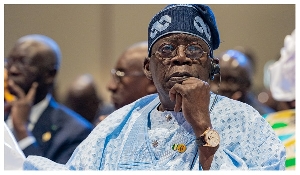The Government of Ghana has accepted to refund all the retail deposits made with duly licensed but now collapsed micro-finance institutions.
Although precise figures on the value of deposits eligible to be considered for refund are as yet unavailable – and would have to be validated anyway – industry analysts say over GH¢ 1 billion in deposits could be at stake.
This follows the revelation by Finance Minister Ken Ofori-Atta, when presenting the 2019 budget proposals to parliament in mid-November, that government has commenced paying depositors with the now defunct DKM Diamond Microfinance, which collapsed in spectacular fashion in early 2015.
The revelation had galvanized depositors with the over 100 MFIs that have also collapsed over the past four years, to demand that they were treated similarly.
However, Bank of Ghana Governor, Dr Ernest Addison has now confirmed that government has undertaken to refund all the retail deposits – of volumes below a specified threshold – hitherto lost to the collapse of MFIs duly licensed by the central bank. This will come as a huge relief for tens of thousands of retail depositors nationwide who had lost hope of retrieving their deposits.
By early November, government had paid depositors with DKM for 79,708 claims out of 99,858 claims over deposits to the tune of GH¢522 million. This translates to 80 percent of all claims made following DKM’s collapse and another 12 percent of total claims have been fully provided for pending proof of deposits made.
In 2018, government made provision to the tune of the equivalent of 1.9 percent of (pre-rebased) Gross Domestic Product, for financing of insolvent financial services companies to save customers deposits. This was to be entirely deficit financed. Since then government has issued bonds to the tune of close to GHc12 billion to bridge the capital shortfalls incurred by the seven banks that have been liquidated, Although the budgetary provision was not restricted to the banks – it was also meant to cover other deposit taking institutions as necessary.
Provisions in the 2019 budget – if any – for bridging capital shortfalls in distressed deposit takers and for refunding deposits in those that have already collapsed, have not been made public as a separate budgetary item.
According to the BoG, out of 566 licensed MFIs on its register as at the beginning of 2018, 211 (37 percent) are distressed or have collapsed completely. The central bank also says that 705,396 deposits worth GH¢740.5 million, held by MFIs and rural banks are in jeopardy, this amounting to 52.4 percent of total deposits held by MFIs. MFIs and rural banks hold about 8.81 percent of total deposits in Ghana.
Government is not obliged to refund deposits, even those placed with duly licensed MFIs because they were not insured. Indeed, deposit insurance, which will provide cover for retail deposits of up to GH¢5,000, is yet to commence. However, government, supported by the BoG sees the need to refund the deposits so as to restore flagging confidence in the financial intermediation industry by Ghana’s banking public.
Business News of Saturday, 1 December 2018
Source: goldstreetbusiness.com













